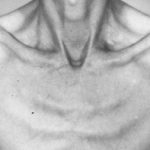Lifestyle

September is National Blood Cancer Awareness Month, National Ovarian Cancer Awareness Month, Prostate Cancer Awareness Month and Childhood Cancer Awareness Month – and there is a connection between cancer and eating disorder habits that cancer patients, family and friends may not be aware of. Cachexia, which is also known as the “wasting disorder,” is a …
Read More

Anorexia and other eating disorders are not about food; they’re about emotional coping. Girls going through puberty are at the highest risk for developing an eating disorder, but the risk can be mediated by a positive role model. Negative Role Models in the Media Young girls often develop a distorted body image because of the …
Read More

If you’re looking for a healthy snack, one that adds few calories to your diet and is nutritious, consider air-popped or stovetop popcorn. One cup of air-popped corn without butter contains only 31 calories, and a cup of butter-less stovetop corn – popped in oil – is just 55 calories. Lightly buttered, popped kernels are …
Read More

The Huffington Post recently reported that more than 75 percent of people with eating disorders cite bullying as a significant cause of their disorder. How does bullying affect natural development, self-esteem and eating behaviors? Bullying Bullying has many negative effects for adolescents. Verbal and physical aggression can devastate perceptions of self-worth and self-esteem by cutting …
Read More

The new psychiatric diagnostic manual, the DSM-5 (scheduled to be in effect later this spring), includes specific criteria for binge eating disorder (BED). Before this change, binge eating was diagnosed under eating disorder not otherwise specified, or eating disorder NOS. In the current diagnostic manual, the DSM-4, anorexia and bulimia are listed as specific diagnosable …
Read More

Both bulimia and binge eating disorder involve recurring episodes of excess eating accompanied by a lack of control. Yet the assumption has been that the dysfunction caused by bulimia is greater than that caused by binge eating. Why? Bulimia involves compensating behaviors such as using laxatives or purging, and binge eating does not. However, research …
Read More

Although eating disorders have been considered a “girl” problem for many years, a recent survey shows that the number of teenage boys who struggle with similar problems is on the rise. The Centers for Disease Control and Prevention (CDC) recently conducted a nationwide survey that looked at the propensity of eating disorders in high school …
Read More

For some teens, the prospect of going off to college can be an exciting time full of changes, adventure, discovery and growth. For many other young adults, the college experience may turn sour. College students can be exposed to endless stress, anxiety, alcohol abuse and eating disorders. Eating Disorders and Campus Life “Eating disorders have …
Read More

We all tend to express the ideas we have grown up with without giving them a second thought. In this way we may unknowingly reinforce or perpetuate the culture of disordered eating. Since we cannot change behavior that we are unaware of, taking a look at the ways we can unwittingly encourage eating disorders helps …
Read More

The word fat carries negative connotations for many of us, yet our body cannot function properly without fat. It is important to know that stored body fat causing unwanted bulges beneath our clothing is caused primarily by ingesting too many sugary and starchy carbohydrate foods, not dietary fat. Eating too much starch is what disrupts …
Read More
 Eating Disorder Self Test. Take the EAT-26 self test to see if you might have eating disorder symptoms that might require professional evaluation. All answers are confidential.
Eating Disorder Self Test. Take the EAT-26 self test to see if you might have eating disorder symptoms that might require professional evaluation. All answers are confidential.
Find a Treatment Facility Near You
Click on a state below to find eating disorder treatment options that could be right for you.










 Eating Disorder Self Test. Take the EAT-26 self test to see if you might have eating disorder symptoms that might require professional evaluation. All answers are confidential.
Eating Disorder Self Test. Take the EAT-26 self test to see if you might have eating disorder symptoms that might require professional evaluation. All answers are confidential.